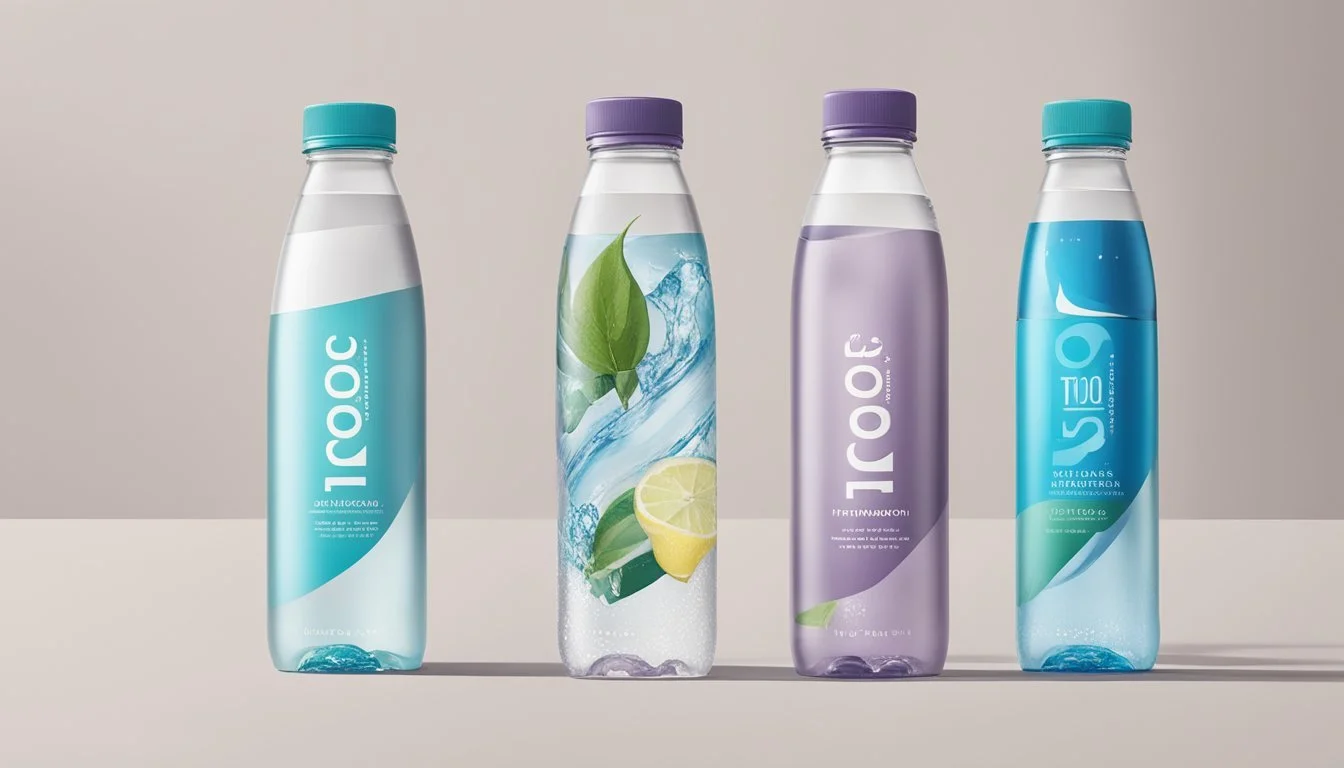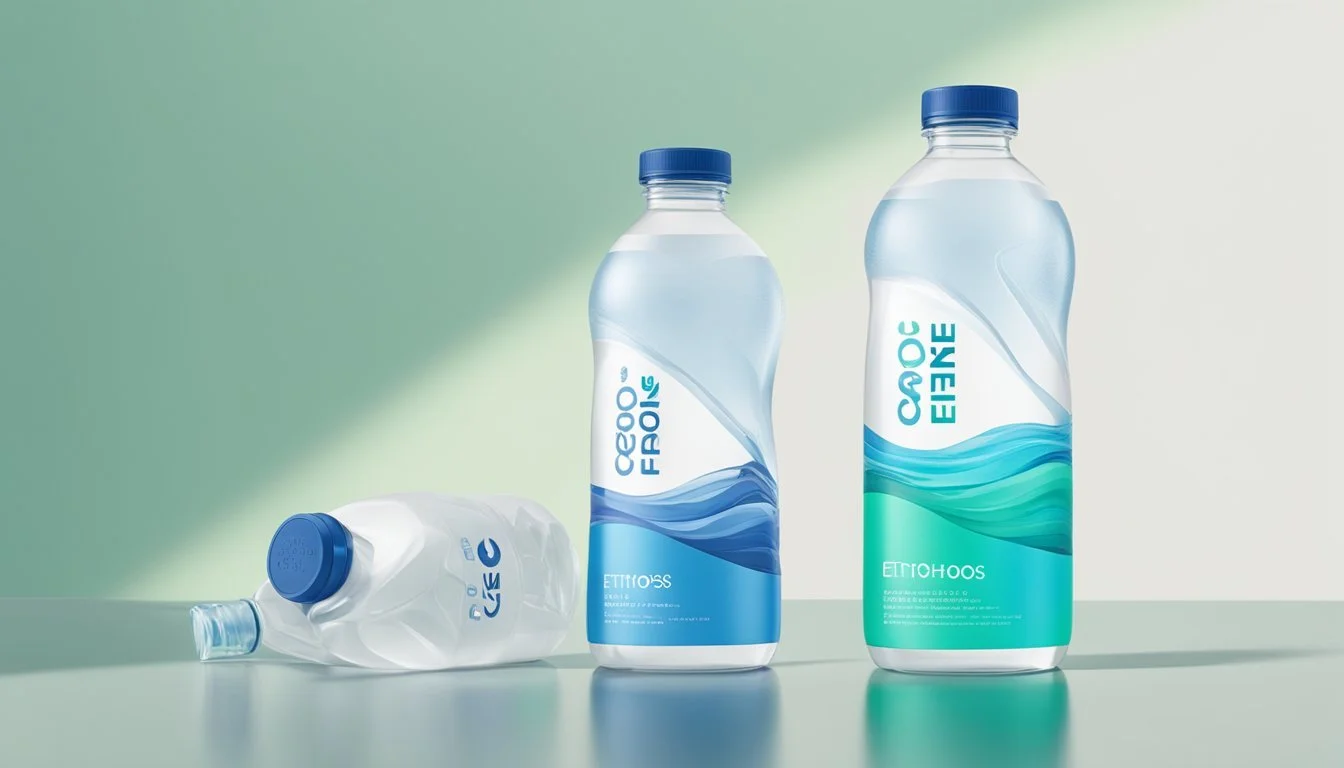Core Hydration vs. Ethos
Comparing Quality and Taste in Bottled Water Brands
The bottled water market offers a vast array of options tailored to the consumer's preferences for taste, source, and added health benefits. Among these, Core Hydration and Ethos water emerge as two noteworthy competitors. Core Hydration is recognized for its ultra-purified water that boasts added electrolytes and minerals for taste and hydration efficiency. Advertised with a seven-step purification process, Core aims to align its product with the body's natural pH.
Ethos water presents its brand with a socially responsible edge. While it offers purified water, its mission transcends the product itself; for every bottle sold, a portion of the profits is dedicated to providing clean water to communities in need. This philanthropic approach adds an ethical dimension to the consumer's choice.
When evaluating these two brands, the consideration extends beyond hydration and health. Consumers must weigh the tangible benefits of water purity and taste against the intangible value of supporting a social cause. The decision between Core Hydration and Ethos is not just about selecting a bottled water; it's about choosing a brand that aligns with personal values and health priorities.
Understanding Hydration and Health
Maintaining proper hydration is crucial for bodily functions, while balancing fluid intake can avert health risks. This section explores the important aspects of hydration's role in health and examines related claims with scientific backing.
The Role of Water in the Human Body
Water is indispensable for the human body, facilitating critical functions such as nutrient transport, waste removal, and temperature regulation. Fluid balance is necessary to ensure that cellular processes operate optimally, as every cell, tissue, and organ relies on water to work effectively.
Dehydration and Overhydration: Risks and Signs
Both dehydration and overhydration can pose serious health risks. Dehydration can lead to kidney stones, urinary tract infections, and impaired cognitive function. Recognizable signs include thirst, dark urine, and fatigue. Overhydration, while less common, can lead to hyponatremia, causing symptoms like nausea, headaches, and in severe cases, brain swelling.
Kidney stones
Urinary tract infections
Impaired cognition
Overhydration Risks:
Hyponatremia
Headaches
Brain swelling
Hydration Myths and Scientific Evidence
Scientific evidence debunks common hydration myths. For instance, the belief that one must consume eight glasses of water daily lacks specific scientific support and does not account for individual needs or other sources of hydration like certain foods and beverages.
Myths vs. Facts:
Myth: Eight glasses of water a day is a must for everyone.
Fact: Hydration needs vary from person to person.
Beverage Consumption and Lifestyle Choices
Lifestyle choices and beverage consumption are intertwined with health. Drinking water is the most effective way to hydrate, but other beverages like tea and certain sports drinks can also contribute to daily fluid intake. However, it's essential to be mindful of added sugars and calories that can impact overall health negatively.
Pure water
Unsweetened tea
Electrolyte-infused drinks (sparingly)
Environmental Impact and Sustainability
The production and disposal of plastic bottles have significant sustainability concerns. Bottled water contributes to plastic waste, which affects ecosystems and requires substantial energy resources. Choosing tap water and reusable bottles can reduce environmental impact and promote sustainability.
Sustainable Options:
Tap water
Reusable water bottles
Glass or BPA-free containers
Comparing Core Hydration and Ethos Water
When choosing bottled water, consumers consider factors ranging from water source to health benefits. This section compares two popular brands, Core Hydration and Ethos Water, along those key dimensions.
Water Source and Origin
Core Hydration is sourced from municipal supplies and undergoes a purification process. Ethos Water sources its water from private springs, with each bottle indicating the particular spring of origin.
Filtration and Purification Processes
Core Hydration utilises a 7-stage filtration process that includes reverse osmosis, ultraviolet light, and ozonation. Ethos Water is filtered through a process that ensures the removal of impurities while maintaining water's natural minerals.
PH Levels and Water Quality
Core Hydration is an alkaline water with a pH balance that typically ranges above neutral at approximately 7.4, which can help neutralize acid in the bloodstream. Ethos Water's pH levels are akin to that of natural spring water, typically around neutral.
Minerals and Electrolytes Content
Both brands add electrolytes for taste; however, Core infuses its water with a blend including calcium chloride, potassium bicarbonate, and magnesium chloride. Ethos Water maintains its natural mineral content without additional enhancement.
Taste and Sensory Experience
Taste can be subjective, but Core's multi-stage filtration process and added electrolytes contribute to its distinct, smooth taste. Ethos, with natural minerals and its spring water heritage, offers a taste that may appeal to those preferring a more natural profile.
Health Benefits and Drawbacks
Drinking Core or Ethos contributes to hydration. Core's high pH may offer benefits for those seeking alkaline diets, while Ethos provides a more natural mineral composition. Neither has sugars or calories, making both suitable for a health-conscious audience.
Packaging and Bottling Practices
Core bottles are 100% recyclable and BPA-free, emphasizing health and environmental responsibility. Ethos too provides water in BPA-free plastic bottles and is known for its association with charitable causes through sales at Starbucks locations.
Price and Cost Comparison
Prices for bottled water vary by region and retailer, but typically, Core Hydration is priced at a premium compared to Ethos Water, reflecting its specialized filtration process and added electrolytes.
Brand Mission and Ethos
While Core focuses on bodily health through pH balance and hydration, Ethos Water, owned by Starbucks, donates a portion of its profits to water access initiatives in underdeveloped countries, combining product sales with a philanthropic mission.
Public and EPA Standards Compliance
Both brands comply with FDA regulations and meet EPA standards for drinking water, ensuring safety and quality for consumers.
Consumer Feedback and Preferences
Customer reviews often highlight Core's clean taste and health benefits. Ethos Water is reputed for its corporate social responsibility and commitment to providing access to clean water worldwide. Consumer preference varies based on individual priorities including taste, health benefits, and brand values.
Alternative Bottled Water Brands
When exploring alternatives to Core Hydration and Ethos, one finds that the bottled water market offers a variety of choices, each with its own unique selling points. Consumers should consider aspects such as taste, pH level, and source when comparing these brands.
Smartwater and Essentia Comparison
Smartwater is vapor-distilled with electrolytes added for taste, positioning itself as a premium water choice. It appeals to those looking for purity in their water with added electrolytes for a distinctive, crisp taste.
In contrast, Essentia offers alkaline water with a pH of 9.5, achieved through a proprietary ionization process. This brand caters to health-conscious consumers who prefer alkaline water for its claimed hydrating benefits.
Fiji, Dasani, and Aquafina Analysis
Fiji Water, sourced from the Fiji Islands, stands out with its natural artesian source, boasting a soft mouthfeel and a unique mineral profile that many describe as smooth.
Dasani, a Coca-Cola brand, employs a purification process and adds minerals for flavor. It's known for its consistent taste and wide availability.
Aquafina, produced by PepsiCo, uses a rigorous purification method called HydRO-7, which it claims reduces substances other purification methods may leave behind, aiming for purity and crispness in its water.
Trends in Bottled Water Consumption
The trends in bottled water consumption show a growing preference for specialty waters, including alkaline water and waters with added health benefits. Water brands are also adapting to consumer demands for sustainable packaging and responsible sourcing. Labels indicating the source and mineral content support transparent consumer choices in an expanding market of beverage consumption.
Getting the Best Out of Your Water
Choosing the right bottled water, such as Core Hydration or Ethos, involves a closer look at several crucial aspects that define a water's quality and suitability for individual preferences and health considerations.
External Factors Influencing Water Choice
Consumers often weigh external factors when selecting a bottled water brand. These factors include geographic source, brand reputation, and packaging. One's lifestyle also plays a role; those who are always on-the-go might prioritize convenience, favoring water with easy-to-open caps or ergonomic bottles.
Geographic Source: Is the water locally sourced or imported?
Brand Reputation: Does the brand have a history of positive customer reviews and quality products?
Packaging: Is it made from recyclable materials and designed for portability?
Lifestyle: Does the water align with the consumer's activity level and health goals?
The Significance of TDS in Water
Total Dissolved Solids (TDS) measure a water's inorganic salts and small amounts of organic matter. Core Hydration advertises a balanced pH, which can be partly due to its TDS level, influencing taste and perceived freshness. The TDS level can indicate the water quality and may affect the body's fluid balance.
Low TDS: Often results in a clean, pure taste.
High TDS: Can offer beneficial minerals but sometimes leads to unpleasant taste.
Water Testing and Quality Assurance
Quality assurance plays a critical role in ensuring bottled water's safety and consistency. Ethos and Core Hydration, like other reputable brands, must undergo scientific testing to meet regulations. Comprehensive testing covers a wide range of criteria, including microbiological purity and absence of contaminants.
Testing Methods: Utilize advanced scientific equipment and methodologies.
Standards Compliance: Ensure adherence to FDA regulations and industry standards.
Cultivating Healthy Hydration Habits
Maintaining hydration is vital for overall health. Consumers should be mindful of not just water quantity but also the quality of their water intake. Brands like Core Hydration focus on added electrolytes for optimized hydration, appealing to those with active lifestyles or in need of maintaining proper hydration.
Daily Intake: Align with health guidelines to consume an appropriate amount of water daily.
Quality over Quantity: Ensure that the water consumed is of high quality, contributing positively to health.
By understanding these factors, individuals can make informed decisions about their bottled water choice to support their hydration needs and health objectives.
Conclusion
When comparing Core Hydration and Ethos Water, consumers typically consider factors such as hydration efficacy, taste, and sustainability.
Core Hydration prides itself on an ultra-purification process and added electrolytes aimed at optimizing hydration. The brand suggests these factors make their water superior for hydration. However, taste can be subjective, and some consumers find it similar to other electrolyte-enhanced bottled waters.
Ethos Water, on the other hand, is less about the technical aspects of their product and more about their ethical commitment. For every bottle sold, they donate a portion of their profits to fund water programs in developing countries. This feature may significantly influence consumers who prioritize social responsibility.
In terms of sustainability, bottled water has its environmental impacts. Brands vary in their efforts to mitigate these effects, and consumers increasingly consider the ecological footprint of their purchases. Neither brand is exempt from environmental concerns, but Ethos’s philanthropic angle may appeal to those looking to support social causes.
Consumers' preferences ultimately dictate their choice. Some prioritize the enhanced hydration and taste profile of Core Hydration, while others may opt for Ethos Water to support its charitable initiatives. Each brand serves the need for clean drinking water but through a different lens – one through a specialized product offering, the other through a cause-centric mission.



